Christopher Lee, aside from being one of the last greats, was also like some otherwordly presence at times too.
It’s difficult in fact to even think of him being deceased without imagining him lingering on as some powerful, supernatural being.
But then I have the same problem accepting that Vincent Price is no longer among the living too. I’ve probably just watched too many of those old horror movies. As with his friends Peter Cushing and Vincent Price, it’s those old films, particularly the classic Hammer horror movies, that Sir Christopher Lee will remain most associated with and remembered for.
There was always the implication, however, that he wasn’t overly thrilled with that, as he considered himself a highly capable and versatile actor and he resented being type-cast. He made well over 200 movies, after all, and he continued working right up until the age of 93. He did a lot of varied work; from portraying Count Dooku in the Star Wars prequels to varied work with Tim Burton (lending his powerful, inimitable voice to the wonderful The Corpse Bride, for example).
He could sing opera, he could even lend his tones to a Heavy Metal album.
With a career spanning so many years, he worked at one stage or another with everyone from Buster Keaton and Laurence Oliver to Tim Burton and George Lucas, and can be regarded as a truly generation-spanning performer, recognised by different age-groups for vastly different things.
For all that, it has to be said he is the greatest Dracula there will ever have been. I still have that Dracula poster on my wall, even though it sometimes scares the crap out of me; I can’t bring myself to take it down.
He allegedly turned down the iconic role in Airplane that the late Leslie Nielsen ended up famously taking – I cannot, with all the powers of my imagination, picture what that would’ve worked out like had he taken it. He was also in consideration for the immense role of Magneto in the X-Men film franchise, but eventually Sir Ian McKellen was chosen.
But in fact one of the most interesting projects he was ever involved in (and one that he was especially proud of, referring to it as his greatest ever role) was when he was cast as Muhammad Ali Jinnah, the founder of Pakistan.
The film Jinnah should have been one of Christopher Lee’s defining performances; the reason it isn’t regarded as such is because the movie never got a mainstream release in the UK and most Western countries. This was something he was particularly bitter about for a long time, as he considered this a politically-motivated ‘boycotting’ of the project due to its Islamic issues and the unfavorable portrayal of Britain’s role in India, Pakistan and the Partition.
What particularly made him bitter about it was that it was one of the very few films in which he was afforded the chance to be both the ‘leading man’ and not the Bad Guy; one of the few films in which Christopher Lee wasn’t type-cast, but allowed substantial screen time to really portray an interesting and significant historical figure. And yet so few people got to even see it, and his obituaries now largely focus on Dracula, the large Hammer Horror catalogue or his more recent roles in the Star Wars and Lord of the Rings franchises and entirely omit any reference to Jinnah – a film very few people seem to have even heard of (let-alone actually watched).
Jinnah is actually a very interesting film.
While not as epic in scale or scope as Richard Attenborough’s Gandhi, it’s a very interesting insight into that time period and those events. It was always impossible for a film like this to really try to do anything on the same level as Gandhi, both because of its significantly smaller budget and due to the fact that Muhammad Ali Jinnah isn’t anything like as universally lionised a historical figure as Gandhi is.
Jinnah is a much quieter, smaller-scaled film, but does a number of interesting, even highly unorthodox, things, particularly for a historical/biographical film.
One of the most interesting things is the way it is structured; the film in fact begins with Jinnah being dead already and entering a very hum-drum version of the afterlife.
From here, he is asked to present the case for his life, his decisions and actions, to determine whether he ultimately did good or caused ill. What then follows is the story of Jinnah’s life, his role in India’s independence and subsequently the Partition and his role in petitioning for the creation of Pakistan. The film isn’t particularly biased in any particular direction and it doesn’t try to draw conclusions about whether Jinnah was ‘in the right’ or ‘in the wrong’. The likes of Gandhi, Nehru and even Lord Mountbatten are never portrayed in a negative light – the entire thing feels fair and balanced throughout.
Christopher Lee was an utterly inspired piece of casting (pictured at top of page). He embodies Muhammad Ali Jinnah incredibly well, both in the basic visual resemblance and in that manner of acquired gentility and sophistication. He plays the part with great conviction and class; and Jinnah remains one of Christopher Lee’s greatest roles, even if no one mentions it.
Anyone who hasn’t seen that film before, should check it out some day. It also remains one of his most culturally significant jobs.
When I watched that film some years ago, aside from being an interesting revisiting of history, it made me freshly realise how far Pakistan itself has derailed from the intentions, ideas and dispositions of its founder. Jinnah cared about his religion of course, but he was a moderate.
He was well-educated, highly Anglicized, a lawyer and a thinker, and if he witnessed the path Pakistan has gone down in the many decades since his death – the political corruption, the Military State (at various points), the spread of religious intolerance and extremism – he would probably be horrified.
One would imagine he would still ultimately advocate independence; but he would do so with far more reservation.
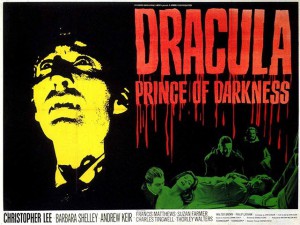
Moving away from Jinnah, the two roles Christopher Lee is probably most renowned for are Dracula (and he *was* the ultimate Dracula) and his pretty creepy part in the cult classic The Wicker Man. The Wicker Man (remade in recent years with Nicholas Cage, for some bizarre reason) is probably the scariest film Lee was ever involved in and his performance in that movie is probably his most unsettling.
Dracula, Frankenstein’s monster, and all those classic horror archetypes can still be scary of course, but what makes his performance in the Wicker Man so scary is that it could so easily be real life. We know that such characters and scenarios exist or have existed in real life and that weird, creepy cults are a real thing, and so part of what’s so effective in that film is a sense of underlying reality.
And even though he was still stuck playing the ‘baddie’, he was at least able to let loose and do it very differently.
Despite frequent claims (based on his fictional roles) that Christopher Lee himself was an occult practitioner and dark-arts enthusiast, he always insisted he wasn’t remotely interested in the matter in any real-world sense.
He admitted, however, to having encountered a number of practicing Satanists in his time and having been highly unimpressed and wary. “I warn all of you: never, never, never,” he later told an audience of younger people. “You will not only lose your mind, you’ll lose your soul.”
I also genuinely liked Christopher Lee’s role in the Star Wars prequels. Following in the footsteps of Alec Guinness and his lifelong friend Peter Cushing by entering into cinema’s greatest saga, he brought an obvious degree of gravitas and sophistication to the proceedings as Count Dooku.

It’s a lovely bit of trivia that Lee was consulted by George Lucas regarding the mere three-second shot of a younger version of the late Peter Cushing’s Grand Moff Tarkin character that appears at the end of Episode III. He also was central to one of the very greatest scenes in all the Star Wars films; specifically his decapitation scene at the beginning of Revenge of the Sith.
He may have only had two or three lines in that sequence, but it was a scene so superbly directed and to which Lee’s extraordinary presence imparted so much.
Unavoidably, however, he will always be remembered most for the horror genre and some of his more Gothic films. The Curse of Frankenstein (one of his numerous projects with Peter Cushing) and Boris Karloff’s Corridors of Blood are two of the best horror films ever made, along with his unmatchable Dracula personifications.
As giants of that genre, the likes of Christopher Lee and the long-deceased Vincent Price and Peter Cushing will never be equalled.
And, again, for any fans out there of historical films – you really should watch the film Jinnah.

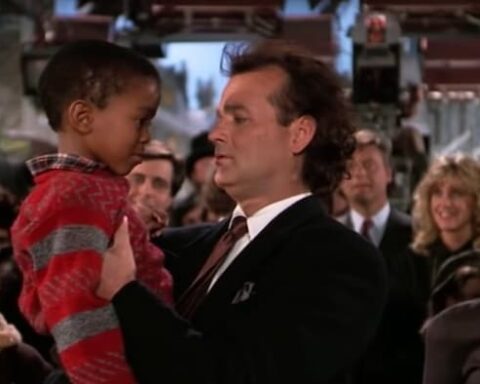
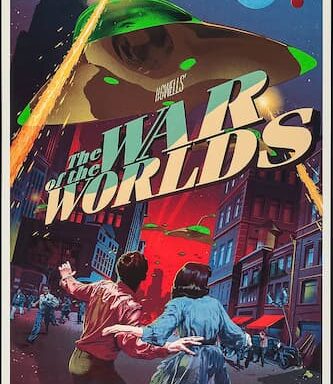
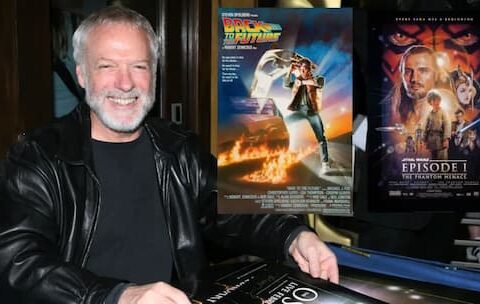
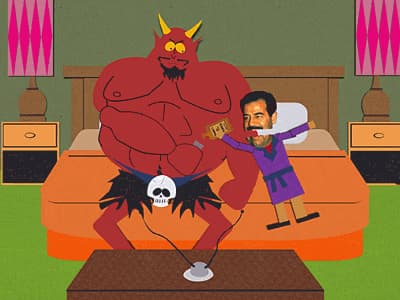
The Wicker man … what a film!
Yeah, a really creepy film. Reeeally creepy.
Well I wasn’t in the mood for a film like ‘Jinnah’ so I watched ‘Revenge of the Sith’ in homage … I am not a Star Wars fan and only really know the first movie Episode 4 … but to me ‘Revenge of the Sith’ had it all and probably warrants a second viewing at least. It makes everything fall interestingly into place, the SFX are amazing and the CGI … just brilliant … and of course Christopher Lee!
‘Revenge of the Sith’ is genuinely one of my four or five all-time favorite films. It’s very special to me. I’m astonished you’d only seen Episode 4 until now though: have you never been curious enough to watch the Empire Strikes Back or Return of the Jedi?
Here’s my ode to Revenge of the Sith, by the way: https://burningblogger.com/2012/10/09/star-wars-episode-iii-revenge-of-the-sith-an-underrated-masterpiece/
I’ve seen Empire Strikes Back and Return of the Jedi but I can’t really remember them in detail although I know the back story. I just thought ROTS was really well produced and Yoda was cool although some of his fight scenes reminded me of Super Smash Bros Brawl!